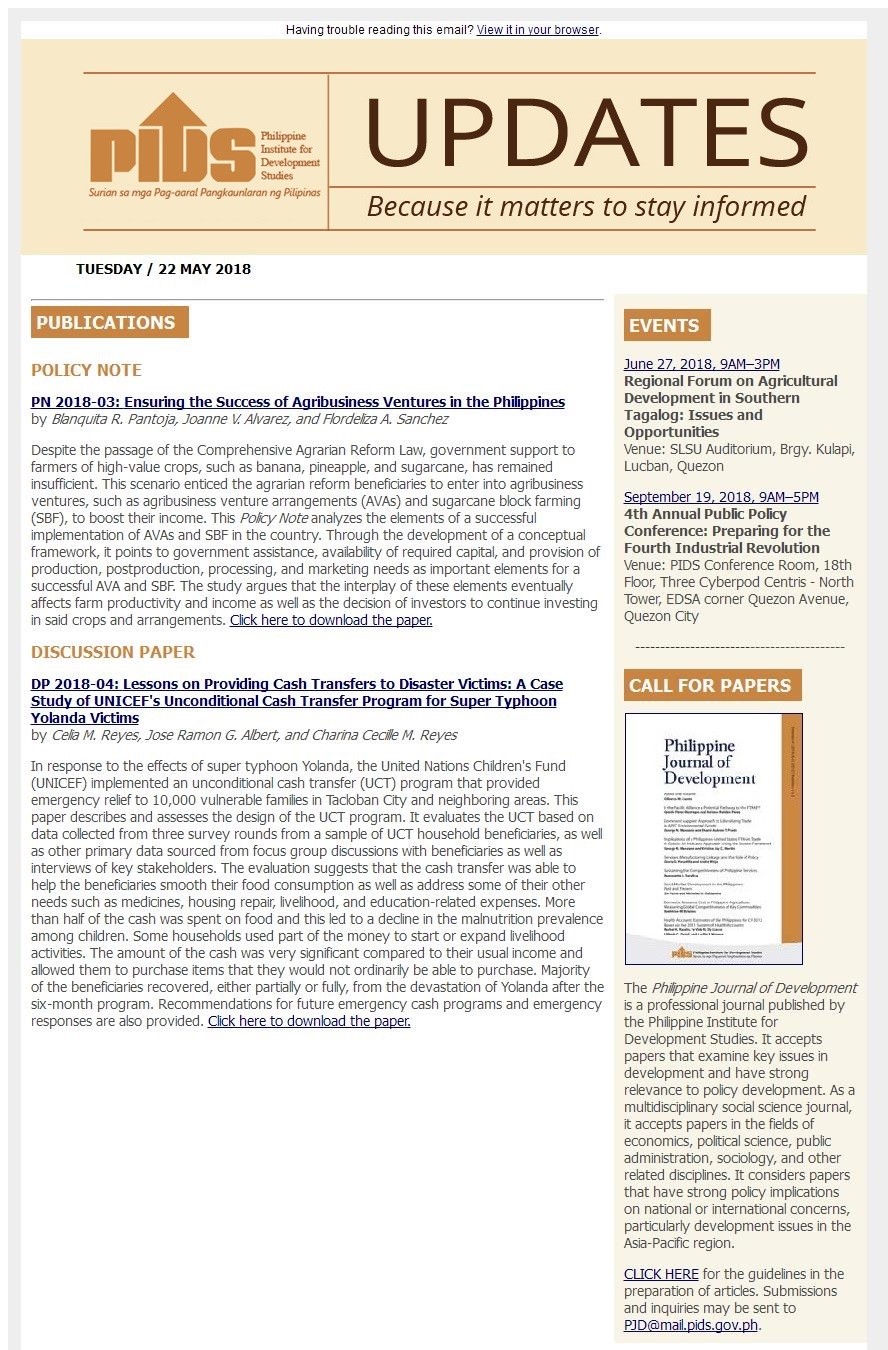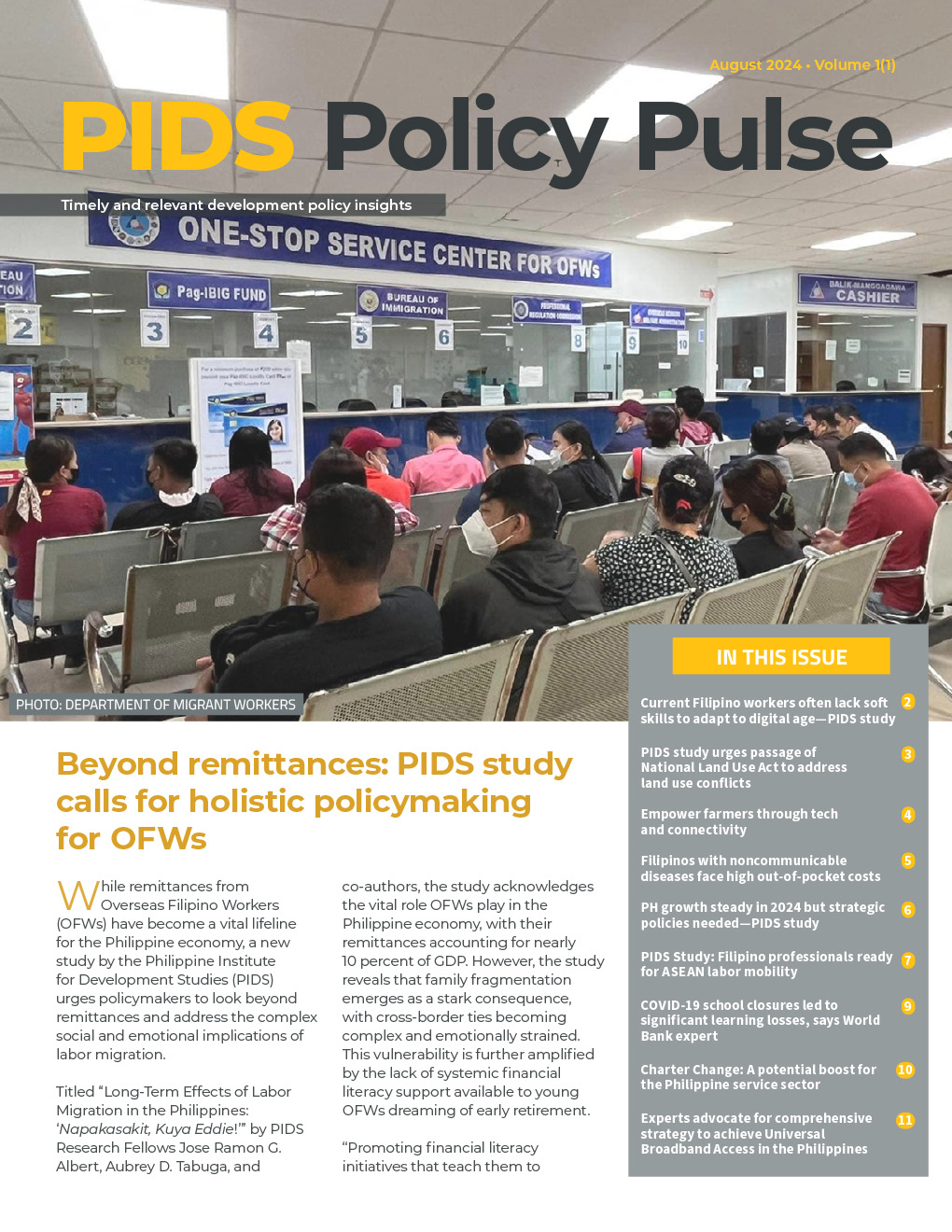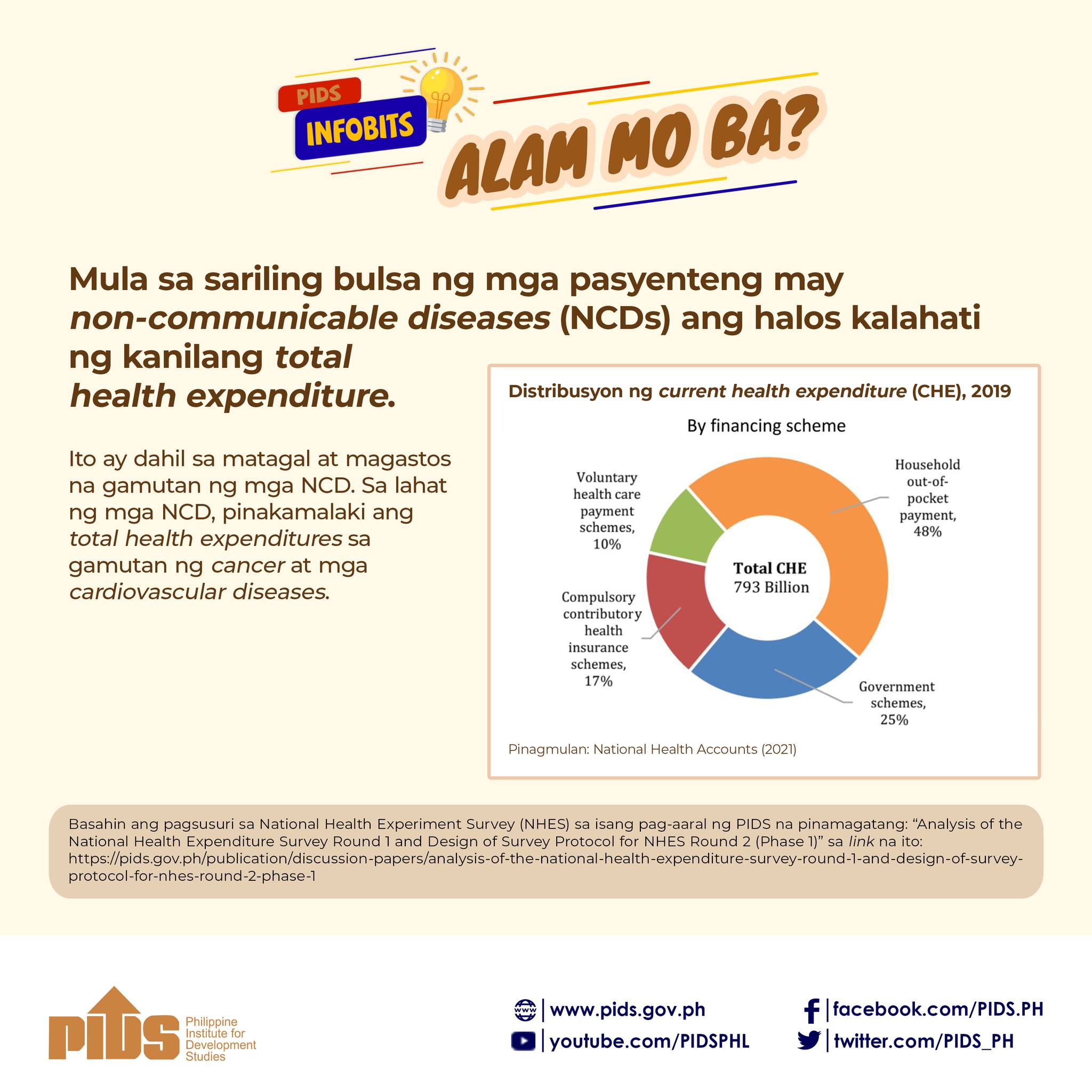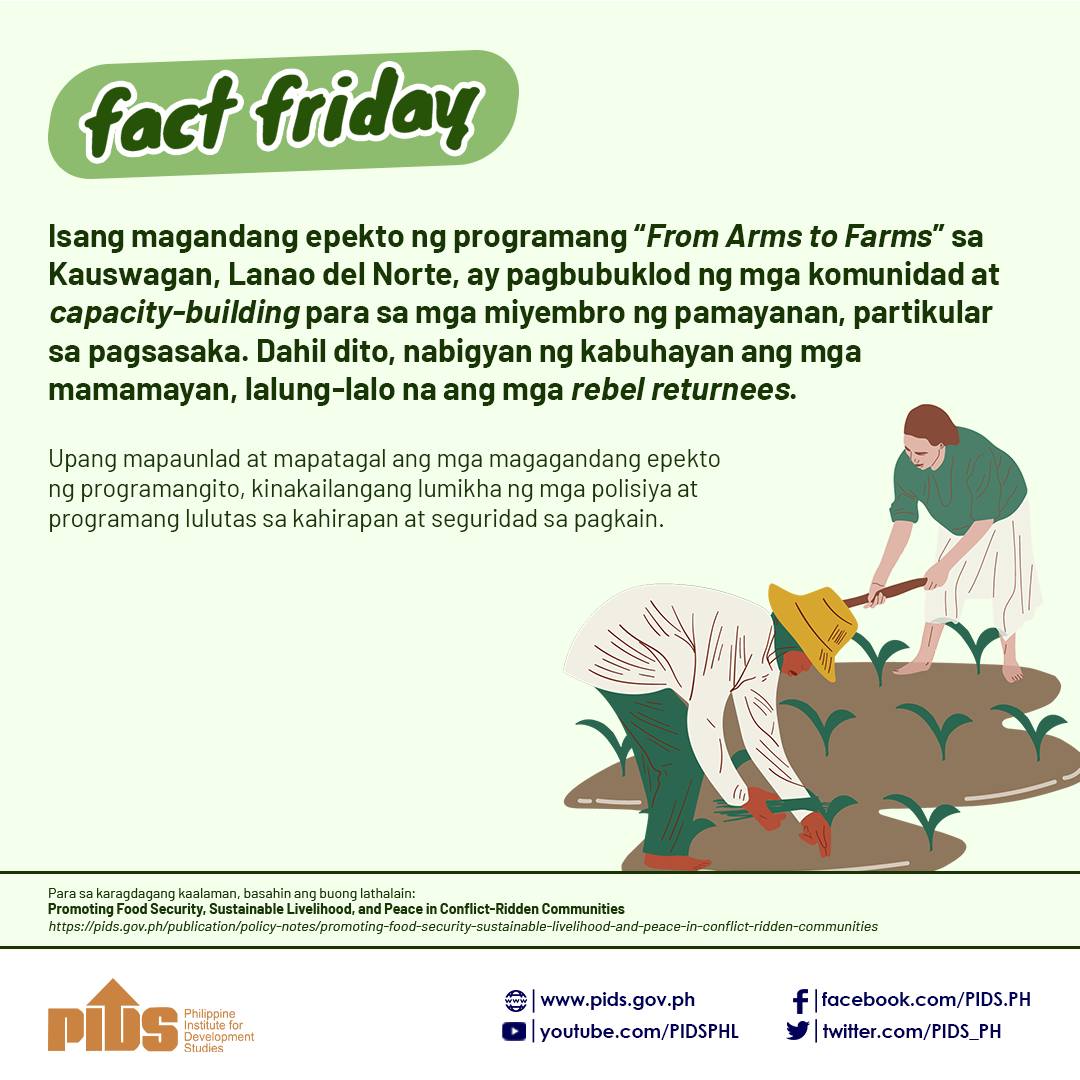
PUBLICATIONS
POLICY NOTE
PN 2018-03: Ensuring the Success of Agribusiness Ventures in the Philippines
by Blanquita R. Pantoja, Joanne V. Alvarez, and Flordeliza A. Sanchez
Despite the passage of the Comprehensive Agrarian Reform Law, government support to farmers of high-value crops, such as banana, pineapple, and sugarcane, has remained insufficient. This scenario enticed the agrarian reform beneficiaries to enter into agribusiness ventures, such as agribusiness venture arrangements (AVAs) and sugarcane block farming (SBF), to boost their income. ThisPolicy Noteanalyzes the elements of a successful implementation of AVAs and SBF in the country. Through the development of a conceptual framework, it points to government assistance, availability of required capital, and provision of production, postproduction, processing, and marketing needs as important elements for a successful AVA and SBF. The study argues that the interplay of these elements eventually affects farm productivity and income as well as the decision of investors to continue investing in said crops and arrangements.Click here to download the paper.
DISCUSSION PAPER
DP 2018-04: Lessons on Providing Cash Transfers to Disaster Victims: A Case Study of UNICEF's Unconditional Cash Transfer Program for Super Typhoon Yolanda Victims
by Celia M. Reyes, Jose Ramon G. Albert, and Charina Cecille M. Reyes
In response to the effects of super typhoon Yolanda, the United Nations Children's Fund (UNICEF) implemented an unconditional cash transfer (UCT) program that provided emergency relief to 10,000 vulnerable families in Tacloban City and neighboring areas. This paper describes and assesses the design of the UCT program. It evaluates the UCT based on data collected from three survey rounds from a sample of UCT household beneficiaries, as well as other primary data sourced from focus group discussions with beneficiaries as well as interviews of key stakeholders. The evaluation suggests that the cash transfer was able to help the beneficiaries smooth their food consumption as well as address some of their other needs such as medicines, housing repair, livelihood, and education-related expenses. More than half of the cash was spent on food and this led to a decline in the malnutrition prevalence among children. Some households used part of the money to start or expand livelihood activities. The amount of the cash was very significant compared to their usual income and allowed them to purchase items that they would not ordinarily be able to purchase. Majority of the beneficiaries recovered, either partially or fully, from the devastation of Yolanda after the six-month program. Recommendations for future emergency cash programs and emergency responses are also provided. Click here to download the paper.












